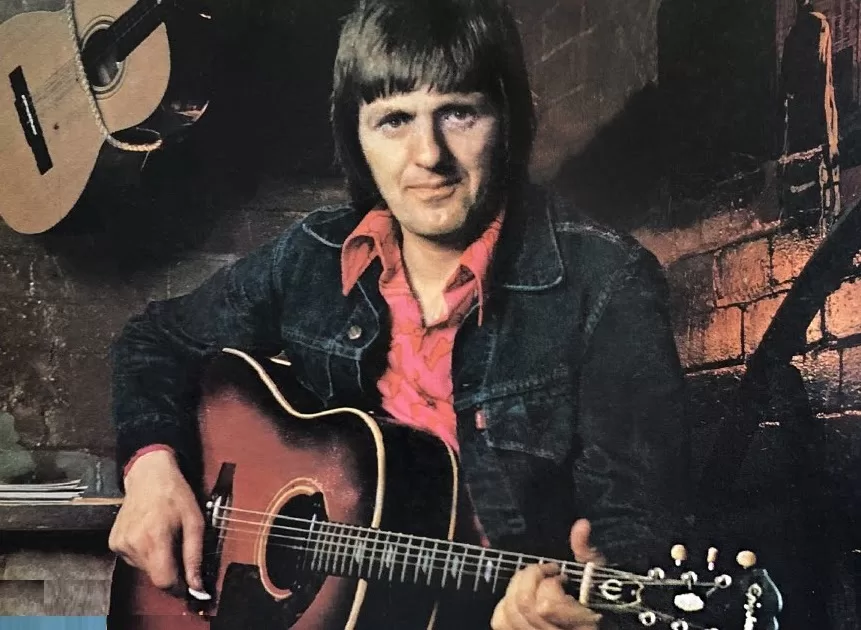Lawrence Frank Allen was born in Melbourne on 09 March 1942 to Jack and Edna Allen. Having been a student of The Melbourne Banjo Club as a child and a self-taught guitar player – Laurie formed his first band in the mid 1950’s. On vocals and guitar, Allen called themselves The Three Jays with Jimmy Braggs on piano accordion and Johnny MacGaw on drums. He followed with stints in the Lories (c. 1958) and then the Roulettes (1958–59), a long-running Melbourne revue band. From 1959 to 1961, he was lead guitarist for Malcolm Arthur and the Knights, and in 1962 he was lead singer and organist of a previously instrumental group, the Blue Jays. The Blue Jays were picked up by the newly formed local label Crest Records. The first single ”Māori’s Farewell” was written by Allen as was the second single ”Wolfman”. Neither track charted and at the end of 1963, the Blue Jays became the Fabulous Blue Jays, the backing band for singer, Tony Worsley. Allen then rejoined the Roulettes.
Whilst in The Blue Jays, Laurie played the keyboard riffs on Colin Cook’s hit single ”Heart”. In 1964 Allen met former Adelaide singer Bobby Bright and they decided to form a duo. In the short time they were together (1964-66) they enjoyed significant success with a number of single releases. Their inaugural release, an Allen-penned foot-stomper called ”I Belong With You” raced up the national charts and landed a few weeks at #9. Their 1966 version of Roger Miller’s “Hitch Hiker” gave them a national #1 hit for five weeks in June remaining in the charts nationally for a further 12 weeks! On the strength of “Hitch Hiker”, the ABC gave them their own TV show, It’s a Gas, which was later re-branded as, Dig We Must.
After recording their last album ‘Exposaic’, the pair officially split on Christmas Eve of 1966. Soon after, Laurie put together a soul revue along the lines of the popular Stax and Motown acts. Originally called Dice, it was later renamed The Laurie Allen Revue, and its members included ex-Rondells Barry Rogers, Gary Young, Wayne Duncan, with guitarist Harry Herni (ex- The Harts) and backing singers Michele Kennedy and Colleen Hewett. Colleen’s sister Glynis later replaced Michele. In April 1967 Allen had told Go-Set: “I realized just a three-piece group couldn’t give me the sound I wanted, so I added two girl vocalists, to give us a distinctive sound which can’t be done by any Australian group”. The Revue released three singles on the Festival label ”Beautiful Brown Eyes / Saved” (Aug. ’67), ”Any Little Bit / Cool Jerk” (Apr. ’68) and ”As Long As I Got You / Not Born To Follow” (Jun. ’68). Only Colleen and Michele can be heard on The Revue’s singles. They disbanded in 1968.
Laurie reunited with his old mate Bobby Bright and they returned to the charts with their cover version of the country music song, “The Carroll County Accident”. It was followed by “Looking Through the Eyes of Love”, but they had split again by late 1971. Allen’s first love was always country music and he eventually moved in that direction. Allen signed on with Col Joye’s ATA label and released the singles ”Sunshine On Your Face” (1972), ”I Belong With You” (1975) and ”Musical Chairs” (1976). During this period, he also recorded two albums with the label. Backed by The Joy Boys his first album ‘Once Upon A Song’ came out in 1972 with all the songs on the album self-written. His second album ‘Any Other Man’ was released in 1975 and included a few covers including a revamped version of the ”Carroll County Accident”.
A collaborative album ‘Truck Stop’ accompanied by label mates Col Joye, Bob Purtell and Jim Cooper was released in 1976 which had the who’s who playing on the recording: Mick Hamilton from The Vibrants, Kenny Kitching on pedal steel, Errol Buddle on reeds and Bob Barnard on trumpet to name a few. In 1976 Bob Purtell won New Talent Of The Year at the Tamworth Golden Guitar Awards with the Laurie Allen written song ”Motivatin’ Day”. Allen also played occasionally as a ‘guest’ with The Promised Band: Bernie O’Brien (ex-The Rondells) on vocals, lead guitar; Harold Frith (ex-Thunderbirds) on vocals and drums; Peter Hayes (The Hayes Brothers) on bass guitar, banjo and lead vocals; and Doug Wallace (Hayes Brothers Band) on rhythm guitar, dobro and fiddle. The Promised Band would eventually morph into Saltbush.
Allen would continue to record on Col Joye’s ATA label and in the 1980s occasionally perform with his old mate Bobby Bright, before they permanently reunited in the late 1990s, performing regularly on the club and rock’n’roll revival circuit and a last-ditch tour of Queensland and Northern Territory. The tour was very successful, but it took a toll on Laurie physically as he had suffered two broken legs from a horrendous motor accident a few years prior. In his last years Laurie Allen suffered chronic health problems but he largely kept this to himself. Bobby and Laurie were slated to take part in the Long Way To The Top concert tour, but these plans were dashed by Laurie’s sudden death from a heart attack on June 13th. 2002 – just 12 days following his last performance with Bob Bright at Moorabbin Town Hall (June 1st. 2002).
Some of Laurie Allen’s recordings were donated to the NFSA by Col Joye where they are preserved for all time. In summary his contribution to Aussie music can’t be denied. Col Joye, Johnny Mac, The Johnny Hawker Orchestra, Lionel Rose and many other Aussie vocalists recorded Laurie’s songs. On hearing of his death, vocalist Colleen Hewett attributed her singing successes to her early work and ‘vocal tuition’ to Laurie (in The Revue). Laurie Allen was indeed an Australian Music legend.
References
Susie Gamble

